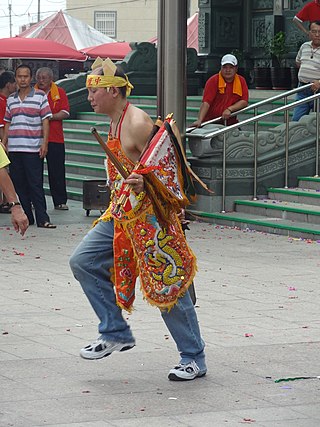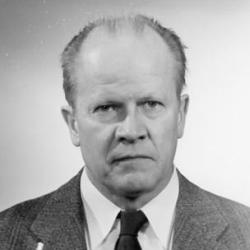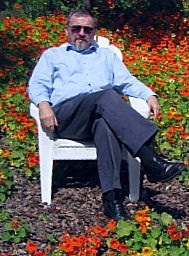Related Research Articles

Anthropology is the scientific study of humanity, concerned with human behavior, human biology, cultures, societies, and linguistics, in both the present and past, including past human species. Social anthropology studies patterns of behavior, while cultural anthropology studies cultural meaning, including norms and values. A portmanteau term sociocultural anthropology is commonly used today. Linguistic anthropology studies how language influences social life. Biological or physical anthropology studies the biological development of humans.

Cultural anthropology is a branch of anthropology focused on the study of cultural variation among humans. It is in contrast to social anthropology, which perceives cultural variation as a subset of a posited anthropological constant. The portmanteau term sociocultural anthropology includes both cultural and social anthropology traditions.

Ethnography is a branch of anthropology and the systematic study of individual cultures. Ethnography explores cultural phenomena from the point of view of the subject of the study. Ethnography is also a type of social research that involves examining the behavior of the participants in a given social situation and understanding the group members' own interpretation of such behavior.

Tongji or Jitong is a Chinese folk religious practitioner, usually translated as a "spirit medium", "oracle", or "shaman".
Marvin Harris was an American anthropologist. He was born in Brooklyn, New York City. A prolific writer, he was highly influential in the development of cultural materialism and environmental determinism. In his work, he combined Karl Marx's emphasis on the forces of production with Thomas Malthus's insights on the impact of demographic factors on other parts of the sociocultural system.

Visual anthropology is a subfield of social anthropology that is concerned, in part, with the study and production of ethnographic photography, film and, since the mid-1990s, new media. More recently it has been used by historians of science and visual culture. Although sometimes wrongly conflated with ethnographic film, visual anthropology encompasses much more, including the anthropological study of all visual representations such as dance and other kinds of performance, museums and archiving, all visual arts, and the production and reception of mass media. Histories and analyses of representations from many cultures are part of visual anthropology: research topics include sandpaintings, tattoos, sculptures and reliefs, cave paintings, scrimshaw, jewelry, hieroglyphics, paintings and photographs. Also within the province of the subfield are studies of human vision, properties of media, the relationship of visual form and function, and applied, collaborative uses of visual representations.

Arjun Appadurai is an Indian-American anthropologist recognized as a major theorist in globalization studies. In his anthropological work, he discusses the importance of the modernity of nation states and globalization. He is the former University of Chicago professor of anthropology and South Asian Languages and Civilizations, Humanities Dean of the University of Chicago, director of the city center and globalization at Yale University, and the Education and Human Development Studies professor at NYU Steinhardt School of Culture.
History of anthropology in this article refers primarily to the 18th- and 19th-century precursors of modern anthropology. The term anthropology itself, innovated as a New Latin scientific word during the Renaissance, has always meant "the study of man". The topics to be included and the terminology have varied historically. At present they are more elaborate than they were during the development of anthropology. For a presentation of modern social and cultural anthropology as they have developed in Britain, France, and North America since approximately 1900, see the relevant sections under Anthropology.

Melford Elliot Spiro was an American cultural anthropologist specializing in religion and psychological anthropology. He is known for his critiques of the pillars of contemporary anthropological theory—wholesale cultural determinism, radical cultural relativism, and virtually limitless cultural diversity—and for his emphasis on the theoretical importance of unconscious desires and beliefs in the study of stability and change in social and cultural systems, particularly in respect to the family, politics, and religion. Explicated in numerous theoretical publications, they are empirically exemplified in monographs based on his fieldwork in Ifaluk atoll in Micronesia, an Israeli kibbutz, and a village in Burma.
Psychological anthropology is an interdisciplinary subfield of anthropology that studies the interaction of cultural and mental processes. This subfield tends to focus on ways in which humans' development and enculturation within a particular cultural group—with its own history, language, practices, and conceptual categories—shape processes of human cognition, emotion, perception, motivation, and mental health. It also examines how the understanding of cognition, emotion, motivation, and similar psychological processes inform or constrain our models of cultural and social processes. Each school within psychological anthropology has its own approach.
California Cultures in Comparative Perspective is a program at the University of California, San Diego in California dedicated to fostering creative and activist interdisciplinary research, teaching, and collaboration among California's communities, faculty, and students. California – in all its dimensions—is the object of its focus.

John Gibbs St. Clair Drake was an African-American sociologist and anthropologist whose scholarship and activism led him to document much of the social turmoil of the 1960s, establish some of the first Black Studies programs in American universities, and contribute to the independence movement in Ghana. Drake often wrote about challenges and achievements in race relations as a result of his extensive research.

Lauriston Sharp was a Goldwin Smith Professor of Anthropology and Asian Studies at Cornell University. He was the first person appointed in anthropology at the university, and he created its Southeast Asia Program, research centers in Asia and North and South America, a multidisciplinary faculty and strong language program. He was a founding member of the Society for Applied Anthropology and a founding trustee of the Asia Society.
The following outline is provided as an overview of and topical guide to anthropology:

David K. Jordan is a Professor Emeritus at the University of California, San Diego since 2004. He received his Ph.D. from University of Chicago in 1969. Jordan is known for his various service posts to the university. These positions include the chair for the Department of Anthropology, the Director for the Program of Chinese Studies, Provost of Earl Warren College, Interim Provost of Sixth College, as well as one of the Founders of the UCSD Department of Anthropology with psychological anthropologist Melford Spiro. Jordan currently participates in the university Academic Senate committees including the UCSD Graduate Council and the Council of Provosts.

Sociology is a social science that focuses on society, human social behavior, patterns of social relationships, social interaction, and aspects of culture associated with everyday life. It uses various methods of empirical investigation and critical analysis to develop a body of knowledge about social order and social change. While some sociologists conduct research that may be applied directly to social policy and welfare, others focus primarily on refining the theoretical understanding of social processes and phenomenological method. Subject matter can range from micro-level analyses of society to macro-level analyses.

Culture is an umbrella term which encompasses the social behavior, institutions, and norms found in human societies, as well as the knowledge, beliefs, arts, laws, customs, capabilities, and habits of the individuals in these groups. Culture is often originated from or attributed to a specific region or location.

Robin Fox is an Anglo-American anthropologist who has written on the topics of incest avoidance, marriage systems, human and primate kinship systems, evolutionary anthropology, sociology and the history of ideas in the social sciences. He founded the department of anthropology at Rutgers University in 1967 and had remained a professor there for the rest of his career, also being a director of research for the H. F. Guggenheim Foundation from 1972 to 1984.
Social anthropology is the study of patterns of behaviour in human societies and cultures. It is the dominant constituent of anthropology throughout the United Kingdom and much of Europe, where it is distinguished from cultural anthropology. In the United States, social anthropology is commonly subsumed within cultural anthropology or sociocultural anthropology.
Francis L. K. Hsu was a China-born American anthropologist, one of the founders of psychological anthropology. He was president of the American Anthropological Association from 1977 to 1978.
References
- ↑ ":: Ucsd : Department of Anthropology ::". Archived from the original on 2010-06-29. Retrieved 2012-06-05.